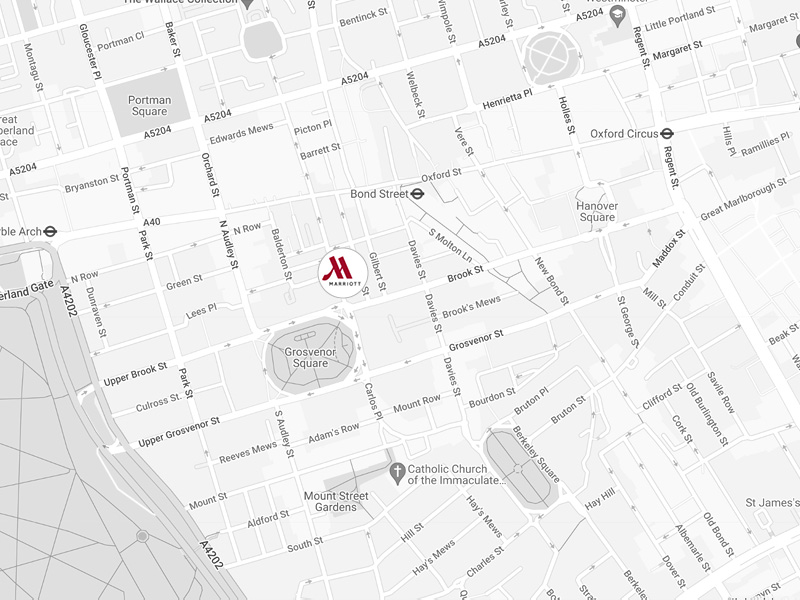
Innovative Retail Employee Rewards: Beyond the Financial
When it comes to creating a happy and productive work environment, financial rewards are typically used to motivate employees. However, there are other ways to implement innovative retail employee rewards that can be more effective in the long run.
We explore the problems with using money as the only incentive and consider how to motivate employees best in the retail industry.
To foster a motivated and committed workforce, it is essential to recognise the efforts of employees. But creating a successful work environment may require more than just monetary incentives. This is where retail employee rewards can be more effective. The purpose behind them is essentially the same. They act as a way of recognising positive work and the contributions of employees that employees are making. However, innovative retail employee rewards can be used in a more comprehensive and tailored way than simple financial incentives.
By embracing new approaches, companies can boost employee happiness and create a company culture that encourages innovation, teamwork, and long-term commitment. Initiatives like employee rewards schemes can make each employee feel like they’re making a difference and ultimately boost morale and productivity.
The pros of monetary incentives for employees
Undoubtedly, monetary incentives hold sway in attracting skilled individuals and providing short-term motivation. Financial rewards, ranging from bonuses to comprehensive benefit packages, have long been standard practices in the business world. They serve as powerful tools in recruitment and can contribute to employee satisfaction, at least in the short run.
Here are some examples of financial rewards and benefits:
- Bonuses – One common practice by retailers is to reward employees with additional payments linked to factors such as store performance, meeting sales targets, or achieving certain customer service goals. Companies such as Tesco, Sainsbury’s and Marks and Spencer use bonuses to incentivise their workforce.
- Stock and Share Options – This form of financial incentive is famously used by John Lewis and many other large UK retailers. By allowing employees to own a share of their company, workers not only stand to gain financially if share prices go up, but also have an added stake in the success of the business. This helps to provide additional motivation in the workplace as well as fostering a sense of community within the company culture.
- Health Insurance – Comprehensive health insurance plans that cover medical expenses, preventive care, and other health-related costs are used to encourage both recruitment and retention.
- Retirement Benefits – These can incentivise and motivate employees to stay loyal to their company. However, this largely depends on the size of contribution made on the employer’s behalf. The lowest contribution an employer can make is 3% with the total contribution from both employer and employee having to be a minimum of 8%. Therefore, for a pension to be an effective benefit offered by retailers, they must make sure both their salaries and pension contribution rates are competitive.
Why money alone falls short in the workplace
Financial rewards, ranging from bonuses to comprehensive benefit packages, have long been standard practices in the business world. They serve as powerful tools in recruitment and can contribute to employee satisfaction, at least in the short run.
Undoubtedly, monetary incentives hold sway in attracting skilled individuals and providing short-term employee motivation. However, research by Tim Judge and colleagues indicates that the association between salary and job satisfaction is very weak. They found that there is less than a 2% overlap between pay and job satisfaction levels, and only a slightly stronger correlation between pay and pay satisfaction. This implies that people’s salary satisfaction is largely unrelated to their actual salary.
This study suggests that the exclusive reliance on financial rewards as a way to motivate employees has its drawbacks. Let’s delve into why money alone falls short of creating retail employee engagement in a sustainable way.
- Short-Term Effects and Demotivation– Monetary incentives, especially those based on competition, may foster a short-lived environment of rivalry among employees. Over time, this can lead to demotivation and impersonal gratification.
- Risk of Entitlement and Intrinsic Needs – There is a risk of employees viewing monetary rewards as entitlements rather than motivators, and they may fail to address fundamental needs for deeper motivation and purpose.
- Bias and Lack of Emotional Connection – Monetary rewards might introduce bias and impact the fairness of compensation decisions. Moreover, they often lack the emotional connection that more personalised forms of recognition can provide.
Thinking outside the paycheck: Innovative retail employee rewards
In the evolving landscape of employee recognition, innovative retail employee rewards play a pivotal role in shaping a positive and dynamic workplace culture.
When considering the purpose of rewards and recognition in retail, Shopify found that 82% of employees believe recognition is an important part of happiness at work. This study reflects the importance of acknowledgment in fostering employee happiness. Their research suggests that innovative retail employee rewards can play a crucial role in enhancing general job contentment and welfare.
Let’s delve deeper into the examples of innovative rewards and explore why these strategies are crucial for employee satisfaction and well-being.
Shout-outs at meetings
Shout-outs at meetings-provide a powerful platform for acknowledging individual and team achievements. This public recognition not only boosts “morale” but also fosters a sense of pride and accomplishment among employees.
Being acknowledged in company-wide communications amplifies the impact of recognition, allowing employees to share their achievements with the entire organisation. This inclusivity contributes to a supportive and collaborative work environment.
Personalised gifts
Personalised gifts add a thoughtful touch to employee recognition. Tailoring gifts to an individual’s preferences or milestones creates a sense of personal connection, demonstrating that the organisation values each employee’s uniqueness.
Opportunities for special projects go beyond traditional job responsibilities, allowing employees to showcase their skills and creativity. This not only provides a sense of empowerment but also contributes to professional growth.
Annual awards ceremonies
Annual awards ceremonies can serve as a grand celebration of employee accomplishments. These events highlight outstanding contributions, instilling a sense of pride and motivation throughout the organisation.
The People in Retail Awards honour individuals in the retail industry for their dedication and hard work by recognising their outstanding contributions and commitment. These awards have been carefully crafted to recognise those who go above and beyond in their roles, exemplifying the spirit of excellence that propels the retail sector forward.
Nicole Bonner of AllSaints, the recipient of the 2023 Spirit of Excellence Award, is one shining example of this excellence. This prestigious award is given to an individual who has shown extraordinary dedication and made a significant contribution to the retail landscape. The awardee is recognised for their outstanding service, ability to inspire others, and dedication to mentorship. Listen to Nicole Bonner’s reaction to receiving the Spirit of Excellence award in the video below.
Extra days off
Extra days off are a strategic investment in employee well-being and productivity. This form of employee award recognises the importance of a healthy work-life balance. These additional days off can also contribute to overall employee satisfaction and morale.
Beyond simply providing a break from the daily grind, days off allow employees to recharge, rejuvenate, and return to their roles with renewed energy and focus. This method not only increases individual job satisfaction, but it also fosters a positive and supportive workplace culture.
Extra days off also demonstrate an organisation’s commitment to creating an environment that values the holistic health and happiness of its team members.
Training sessions and free courses
Training sessions and free courses represent investments in employee development. By providing opportunities for skill enhancement, organisations empower their workforce to grow both personally and professionally. This commitment to continuous learning not only benefits individual employees but also strengthens the collective skill set of the entire organisation.
Why should you enter retail industry awards?
Prestigious events such as the People in Retail Awards provide a unique venue for companies to honour staff members in a variety of ways. Participation in such retailer employee award ceremonies does more than just acknowledge people; it also acts as a strong catalyst for cultivating a positive culture within the company. Employees feel appreciated and proud of their work after these events, which boosts morale and productivity.
Recognising outstanding work at award ceremonies through numerous award categories has a multiplicative effect: it raises spirits on an individual level and, more importantly, it helps everyone feel like they’ve made a difference by working together. By seizing these opportunities, the company is demonstrating its dedication to recognising and appreciating the exceptional work of its employees.
Why you should adopt innovative approaches
Over time, creative forms of employee recognition outperform more conventional forms of financial compensation.
Innovative retail employee rewards have been a huge success for many reasons. Here are a few of them:
- Personalised Appreciation – Tailoring recognition to individual preferences and achievements fosters a sense of value and uniqueness among employees. When recognition is specific and personal, it resonates more deeply, reinforcing the notion that each contribution is genuinely appreciated.
- Creating a Feeling of Belonging – Employee recognition contributes to a sense of belonging and inclusion within the workplace. Recognising individual efforts communicates that each team member is an integral part of the organisation, strengthening their connection to the company and their colleagues.
- Creating a Positive Culture – Recognition initiatives contribute to the establishment of a positive organisational culture. When employees feel acknowledged and valued, it sets a tone of positivity that can permeate the entire workplace, fostering an environment where people are motivated to excel and support one another.
- Encouraging Peer Recognition – Peer-to-peer recognition creates a supportive community within the workplace. When employees are empowered to acknowledge and appreciate each other’s efforts, it not only enhances teamwork but also contributes to a culture where positive behaviours are consistently reinforced among colleagues.
- Guaranteeing Continuous Reinforcement – Consistency is key in recognising and reinforcing desired behaviours. Innovative retail employee rewards ensure that recognition is an ongoing process rather than a sporadic occurrence. This regular reinforcement helps solidify positive behaviours and motivates employees to consistently strive for excellence in their roles.
Moreover, a study conducted by Deloitte, emphasises the shift towards non-monetary recognition and the impact it can have on employee engagement. According to their research, organisations that practise recognition have higher levels of employee engagement, productivity, and customer service than those that do not.
In conclusion, while financial rewards hold importance, their effectiveness diminishes in the long term. Investing in innovative ways of appreciating employees is crucial for sustained employee engagement and retention.
Get Involved with The People in Retail Awards
The People in Retail Awards serve as a testament to the power of innovative recognition methods.
We offer a unique platform for individuals and businesses to actively engage in celebrating exceptional achievements and contributions in the retail sector.
Whether you want to partner with us, nominate a retailer, or have questions about the awards, we’re here to help.
